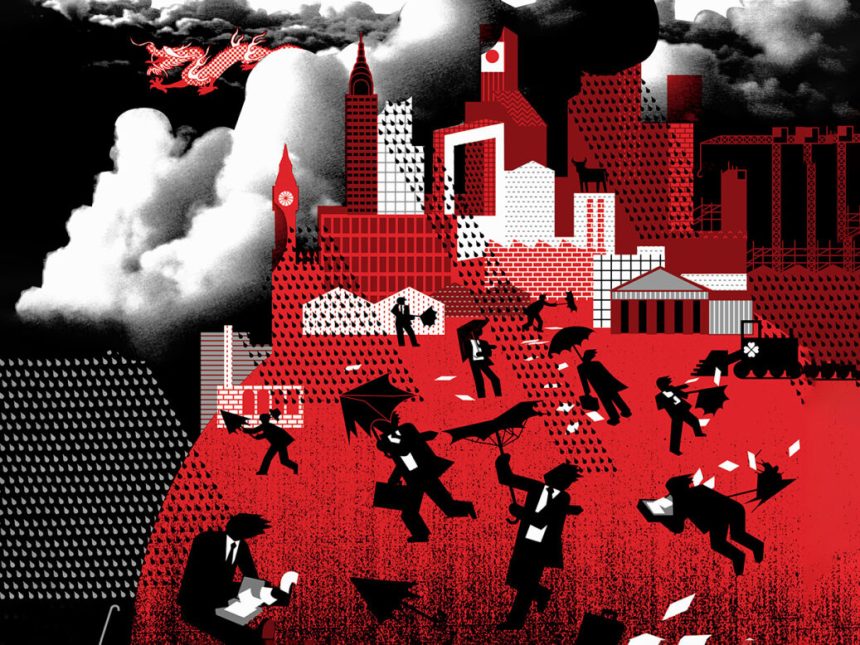Since the beginning of the era of globalization, Europe has compensated for the relative weakness of domestic growth drivers with the pull of non-EU markets such as China and the US, and the availability of imported raw materials at stable prices. Among the major countries, Germany – and especially its industry – has been the big winner in this stage of capitalism. However, this stage is coming to an end, and this has consequences for the Spanish economy, both negative in the immediate future and positive if we know how to read the transformations underway.
The global outlook is increasingly fragmented. The latest IMF global outlook confirms that globalization is giving way to a slowdown in international trade, especially between geopolitical blocs. In other words, trade is becoming regionalized, moving away from the ideal of multilateralism forged after the fall of the Berlin Wall. This is evidenced by the stagnation of trade between the EU and the rest of the world: exports to non-EU destinations, which had increased at an annual rate of around 5.5% in real terms in the period 2000-2019, barely grew slightly above 1% in the last three years. Likewise, investment by third countries in the European productive fabric has plummeted (from more than 400 billion per year before the pandemic, to less than half).
The global picture is increasingly fragmented. The IMF’s latest global outlook confirms that globalization is giving way to a slowdown in international trade, especially between geopolitical blocs. In other words, trade is becoming regionalized, moving away from the ideal of multilateralism forged after the fall of the Berlin Wall. This is evidenced by the stagnation of trade between the EU and the rest of the world: exports to non-EU destinations, which had increased at an annual rate of around 5.5% in real terms in the period 2000-2019, barely grew slightly above 1% in the last three years. Likewise, investment from third countries in the European productive fabric has plummeted (from more than 400 billion per year before the pandemic, to less than half).
At the same time, the unit cost of imports has increased in relation to the price of the goods and services we export outside the EU. This reversal (or deterioration in the terms of trade) is mainly due to the increase in the price of raw materials, especially energy. Although the situation has improved considerably in recent months, the unit cost of imports continues to rise at a faster rate than that of exports, as well as being highly volatile, just the opposite of the trends observed in the heyday of globalization. The double shock of fragmentation and relative import prices helps to explain the weakening of European industry, as the sector’s activity indicator has fallen again and is now entering contractionary territory. The IMF forecasts very weak, or in some cases negative, growth for our main European partners.
The trend, which overlaps with the relentless rise in interest rates, is worrying for Spain. Foreign trade has been a crucial factor in our country’s prosperity, providing additional growth in times of expansion and mitigating recessions. Net exports directly contributed more than half of last year’s GDP growth, not counting the knock-on effect on investment in equipment and other demand aggregates. And in the financial crisis, austerity policy would have cost even more had it not been for the resilience of the external sector, particularly tourism.
However, some opportunities are also on the horizon as industry relocates – with positive effects in terms of the fight against climate change – and taking into account our comparative advantage in the renewable energy sector. The deepening of European integration, the only viable option in the face of the logic of geopolitical blocs, could benefit us, as can be seen from the strong surplus in our trade with the rest of Europe. In any case, these are assets that we should take care of and value with our own resources. But de-globalization also lends itself to a reading in a European key, because the worst response would be an escalation of national selfishness within the Union. We can see the inflation of all kinds of subsidies and incentives that aim to gain competitiveness in a spurious manner at the expense of other partners. In this dilemma, it is necessary that the next European elections serve to define an overall vision.


